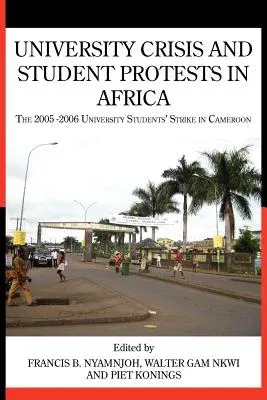Faced with a deepening crisis in their universities, African students
have demonstrated a growing activism and militancy. They have been
engaged in numerous, often violent, strikes for improvements in their
deteriorating living and study conditions and the introduction of a
democratic culture in the universities and society as a whole, including
the right to express their views, organise in student unions and
participate in university management. This book focuses on a recent
violent strike action in Cameroon's state universities, with special
attention to the University of Buea - the only English-speaking
university in the country between 1993 and 2011. Such a detailed study
on student strikes is still rare in African studies, and maybe even more
important, this book pays special attention to certain elements that
have been of great significance to the strike but are often overlooked
in narratives of other student actions in Africa, namely the use of cell
phones, differences in gender roles of student activists, the religious
dimensions of the strike, the central role of some public spaces like
bars and cafés for the planning and execution of student strikes, and
the power of the photocopier. The book goes far beyond simply
documenting the various protest actions of students against the state
and university authorities. It also provides ample room for comments
from journalists and other civil-society members and groups on various
aspects of the strike.


